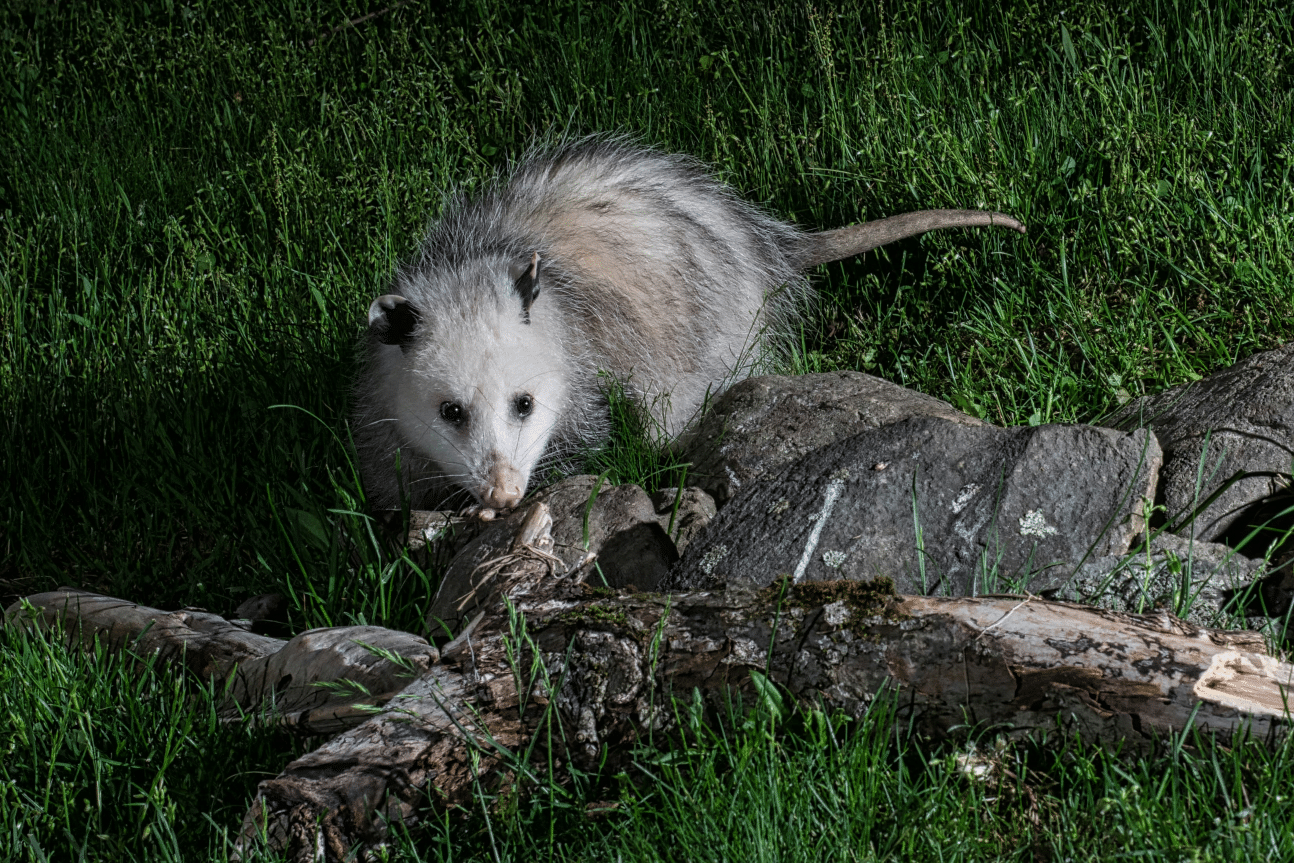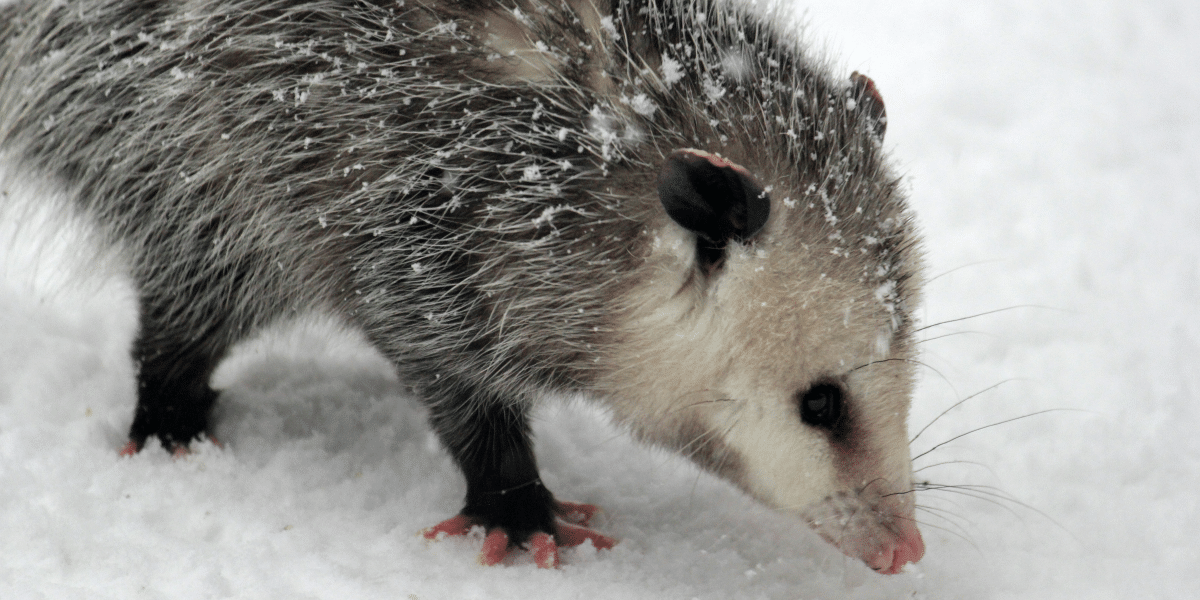Encountering opossums on your property can raise various concerns, particularly regarding potential damage and health risks. Understanding how to manage these nocturnal creatures effectively ensures they don’t become a persistent issue. Their presence may lead to problems with your garden and trash and even attract other pests.
Opossums are generally non-aggressive and can benefit your ecosystem by controlling insect and rodent populations. However, their scavenging behavior might lead to unwanted messes or disturbances, especially if they find easy access to food sources in your yard. Knowing what attracts them and how to secure your property can greatly reduce the likelihood of any unwanted encounters.
By addressing opossum concerns proactively, you can maintain your property’s integrity and enjoy peace of mind. Being informed about their habits and how to deal with them will empower you to protect your space effectively.
Identifying Opossum Presence
Observing your property for signs of opossum activity is essential for managing concerns effectively. Recognizing potential damage and nesting behaviors helps you take timely action to mitigate issues.
Signs of Opossum Damage
Opossums can cause specific types of damage to your property. Look for distinct signs, such as:
- Chewed Wires and Insulation: Opossums might gnaw on electrical wires or insulation in attics, especially in homes in areas like Frisco.
- Footprints or Tracks: Look for evidence of paw prints in soft soil or dust. Opossum footprints are about 2 to 3 inches long and feature five toes.
- Scattered Food or Garbage: If you notice a sudden tendency for your trash to be rummaged through, it could indicate an opossum’s presence.
These signs reflect the typical damage that opossums can create if they find access points into your home or property.
Recognizing Opossum Nesting Behaviors
Nesting behaviors can reveal if opossums are making themselves at home in your space. Pay attention to these key indicators:
- Nesting Areas: Opossums often prefer secluded and dark locations. Common nesting sites include attics, under decks, or within piles of debris.
- Droppings: Finding small, dark droppings in your attic or yard can signal opossum activity. Their droppings resemble those of a house cat but are often larger.
- Nocturnal Activity: Opossums are primarily nocturnal. If you notice unusual nighttime sounds, such as scratching or scurrying, consider inspecting potential nesting sites.
Identifying these behaviors is crucial for addressing any concerns related to opossums on your property.
Assessing the Risks

When considering the impact of opossums on your property, you should focus on specific threats they may pose and the health and safety concerns associated with their presence. Understanding these factors can help you manage potential issues effectively.
Threats to Property
Opossums can cause various types of damage to your property, particularly if they decide to nest or take shelter. They may chew on electrical wires, insulation, and even wooden structures, leading to costly repairs.
Their foraging habits can also disrupt gardens, lawns, and landscaping. They are known to dig up bulbs and uproot plants for food. If you have a compost pile, they can create a mess and attract other pests. This behavior can turn a well-maintained yard into a source of frustration.
Health and Safety Concerns
While opossums are generally not aggressive, they can pose health risks. They are known carriers of parasites and diseases that can affect pets and humans, including leptospirosis and salmonella.
Their droppings can lead to unsanitary conditions, especially if they relieve themselves in areas frequented by pets or children. Additionally, opossums near food sources may attract larger predators such as coyotes or raccoons, increasing danger to pets and property.
Taking necessary precautions, like securing trash and sealing entry points, can mitigate these risks effectively.
Removal and Control Strategies
Addressing opossum concerns on your property involves both professional removal options and effective DIY prevention techniques. Implementing these strategies can help you manage the presence of opossums and reduce the likelihood of future infestations.
Professional Opossum Removal
Consider hiring a professional wildlife removal service in Frisco to remove opossums from your property immediately and effectively. Trained specialists understand local regulations and use humane methods to trap and relocate these animals safely.
They can assess your property for entry points and identify attractants that draw opossums in. Services typically include:
- Comprehensive inspection
- Safe trapping and removal
- Advice on preventing further infestations
Using experts helps ensure that the removal process is handled correctly. Companies like Critter Stop have a fantastic reputation and online customer reviews, reflecting their commitment to high-quality work and excellent customer service. Call Critter Stop at (214) 234-2616 for a free inspection.
DIY Prevention Techniques
To prevent opossum infestation in your yard, you can take several proactive steps:
1. Secure Garbage Bins: Use heavy-duty bins with tight-fitting lids to avoid attracting opossums to your trash.
2. Remove Food Sources: Keep pet food indoors and promptly clean up any fallen fruit or birdseed.
3. Close Off Entry Points: Seal gaps under decks, porches, and around sheds to deter opossums from nesting.
4. Use Fencing: A fence buried a few inches underground can prevent them from digging under.
Implementing these techniques can help create an environment discouraging opossums from making your property their home.
Published by: Josh Tatunay

















